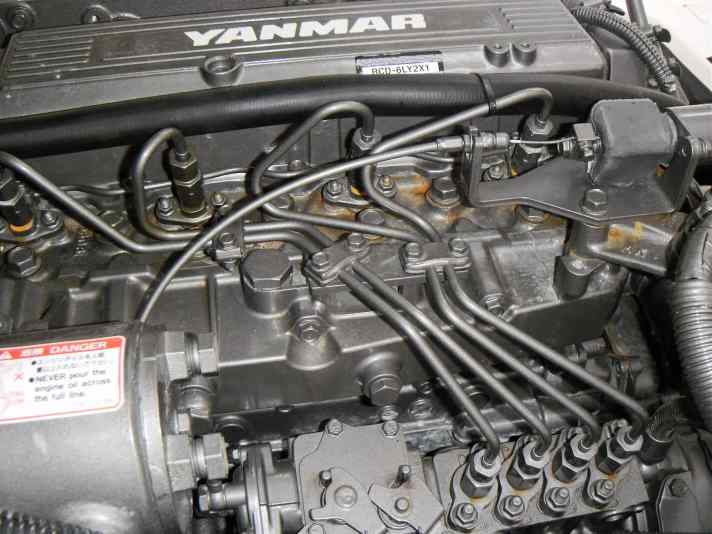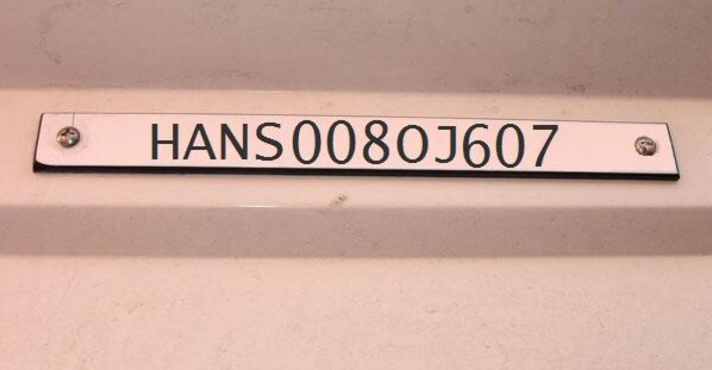
Cheque fraud has worked for many years in the sale of houses and cars. In the recent past, such perpetrators have also increasingly tried to trick yacht owners. We described how you can protect yourself against this and other methods in YACHT 21/12. In it, we emphatically warn against unseen purchases or sales from abroad and by cheque. Apparently the fraudsters have reacted to this, as readers have now sent us detailed reports about two new scams in which the fraudsters themselves advise against paying by cheque, which has fallen into disrepute - apparently in order to create trust. Instead, they suggest another way of trading. We would like to warn you about this:
Case number one
A reader comes across an offer for a Hanse 430E on an online second-hand boat exchange. Built in 2007 and supposedly in excellent condition, the boat looks like a bargain with an asking price of 55,000 euros. The only catch: the boat is moored on a river in inland Slovenia. But the pictures sent along show a really well-maintained ship, and the price is excellent. The seller speaks broken German and broken English, but seems friendly and also has a solution ready for the logistics:
He even offers to have the ship delivered to the new owner in Germany free of charge for the stated purchase price. But he set some conditions for this: He wants to send the purchase contract, which the buyer should sign and send back to Slovenia, but he also wants to receive the money by bank transfer at the same time. The ship should then reach the new owner within three days on a low-loader.

The seller reacts angrily to the buyer's conditions of first signing the contract, flying to the boat and only paying afterwards, and suggests that the buyer should either accept his conditions or look for another boat. Or simply come to Slovenia. However, this invitation is quickly withdrawn: "If everything sounds good, why are you so keen to come here?"
A compromise is reached: the buyer is initially to pay half (27,500 euros) and the other half after delivery of the yacht. As security, the seller sends photographed serial numbers of the yacht and the installed engine by e-mail in advance. However, what arrives by e-mail is a poor photomontage of a serial plate and an engine. The potential buyer recognises this and pulls the ripcord. Fortunately for him!

The second case
This time, a reader wants to sell his sailing yacht and finds a potential buyer from Belgium. The price is negotiated by email, but the Belgian is unable to attend the viewing in person. However, because he knows the boat, any risks are excluded in the purchase contract and the buyer identifies himself with a scanned ID. The purchase contract is signed and the boat is to be collected at short notice. A few days pass before the alleged buyer gets in touch again. He reports that his bank requires identification of the seller. The seller is to transfer 500 euros to an account in South Africa. This is a formal procedure, he says, only then can the bank transfer the purchase price plus the 500 euros already paid.
The Belgian explains the procedure and the reason for it in perfect English and in great detail, but somehow there still seems to be something fishy about it. The salesman begins his research and comes across the real Belgian whose ID was misused for this scam. An older person had been specially chosen to make the story seem more credible. The seller learns that the scam was apparently carried out on a large scale, designed to collect the 500 euros as often as possible. And the phone of the unfortunate owner of the ID card has been ringing off the hook ever since.
It is therefore worth keeping your eyes and ears open when buying and selling a boat, especially when dealing with business partners from abroad. Asking as many questions as possible, having detailed photos sent and verifying the identity of the supposed buyer/seller in several ways should form the basis of every deal. Of course, not every bargain from abroad is immediately an attempt at fraud - but it is worth being a little more suspicious in these cases.

